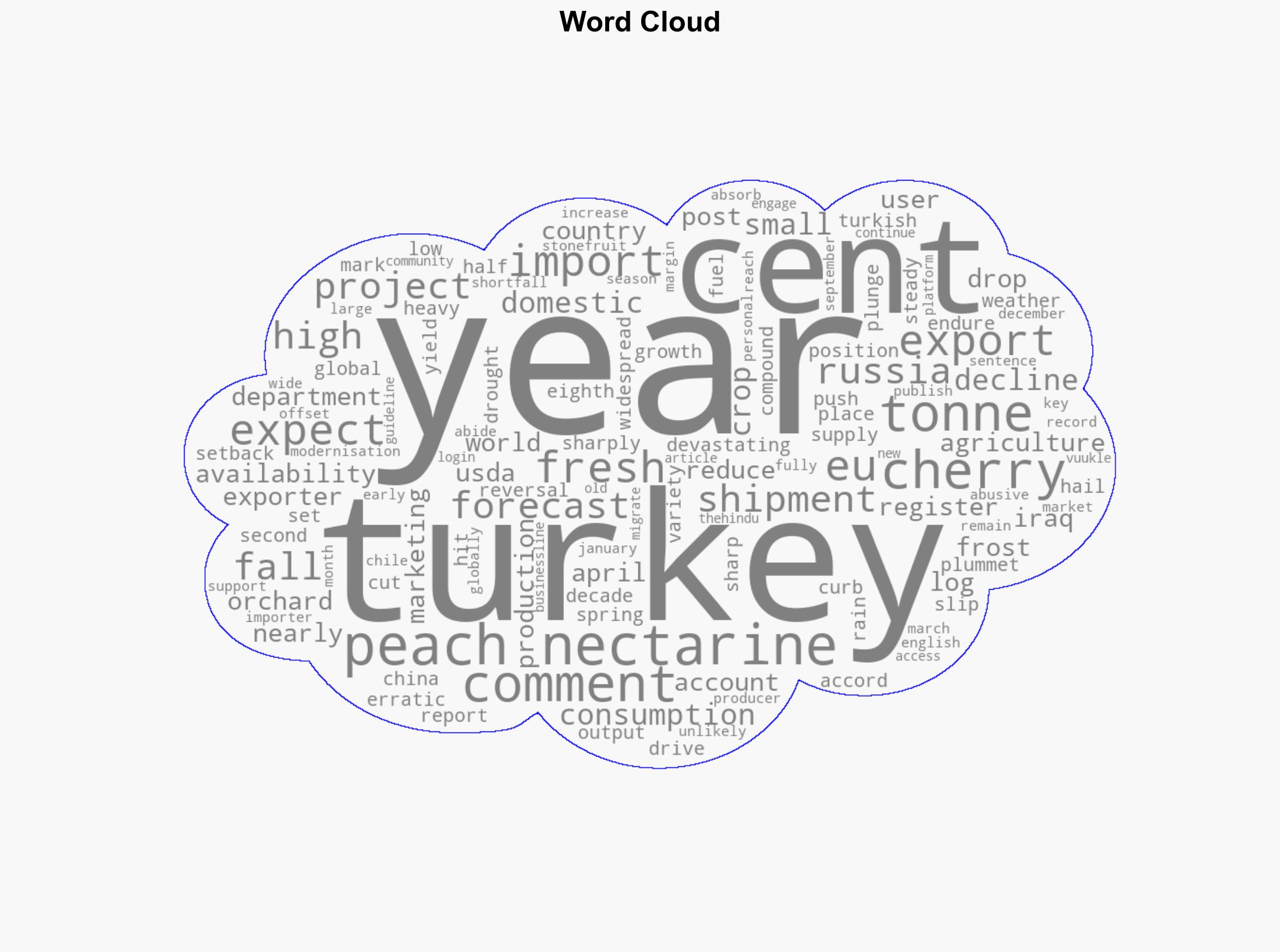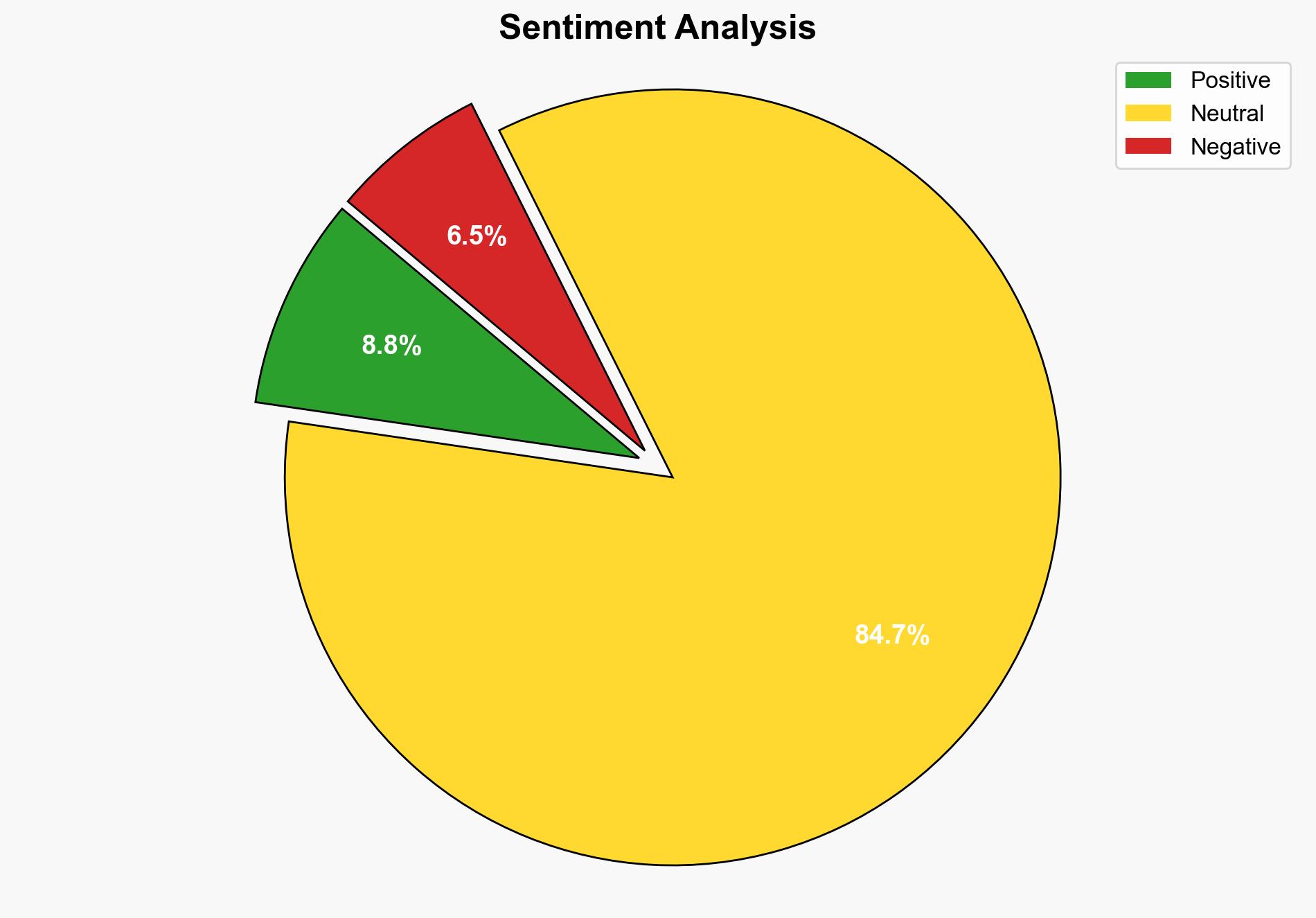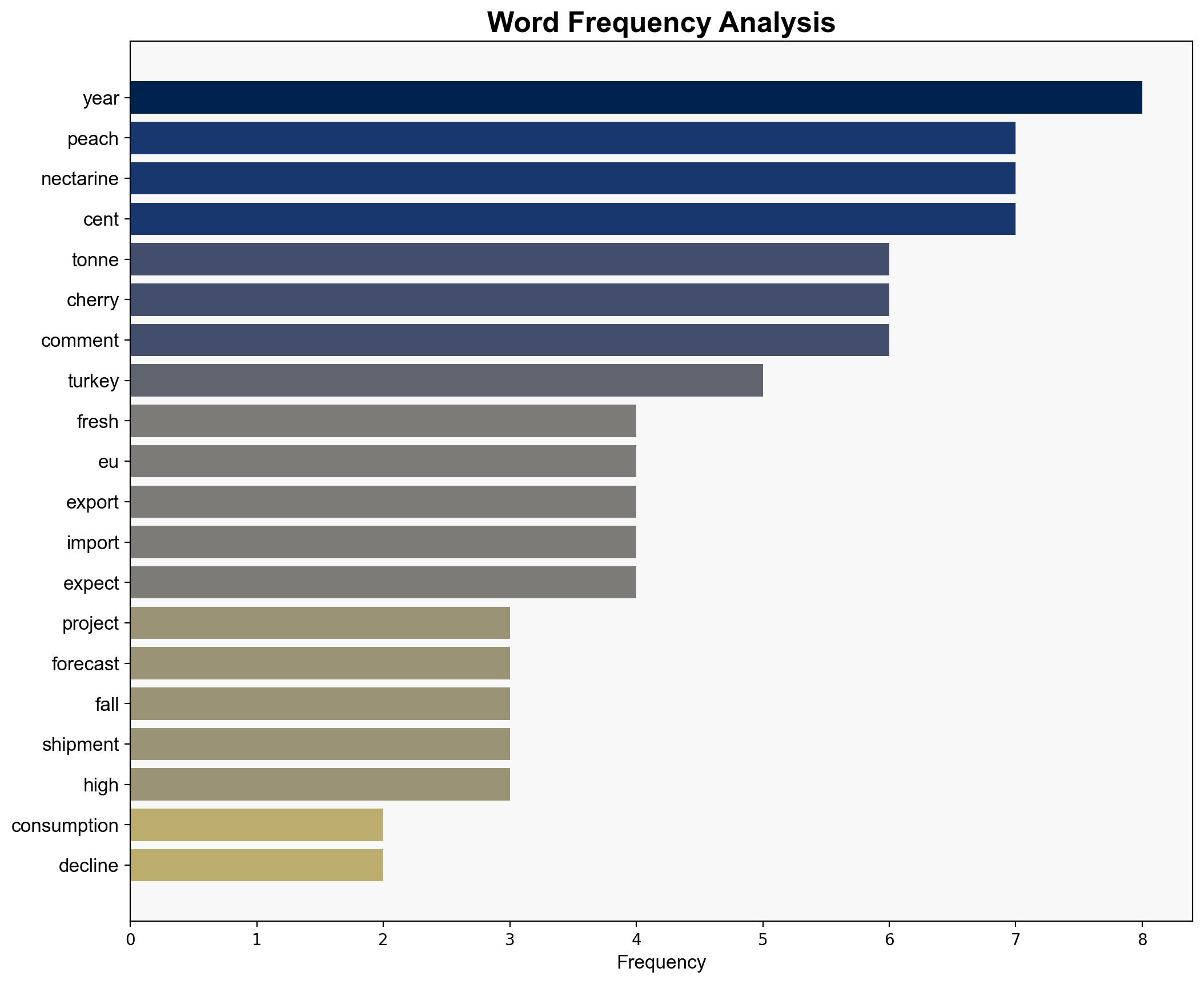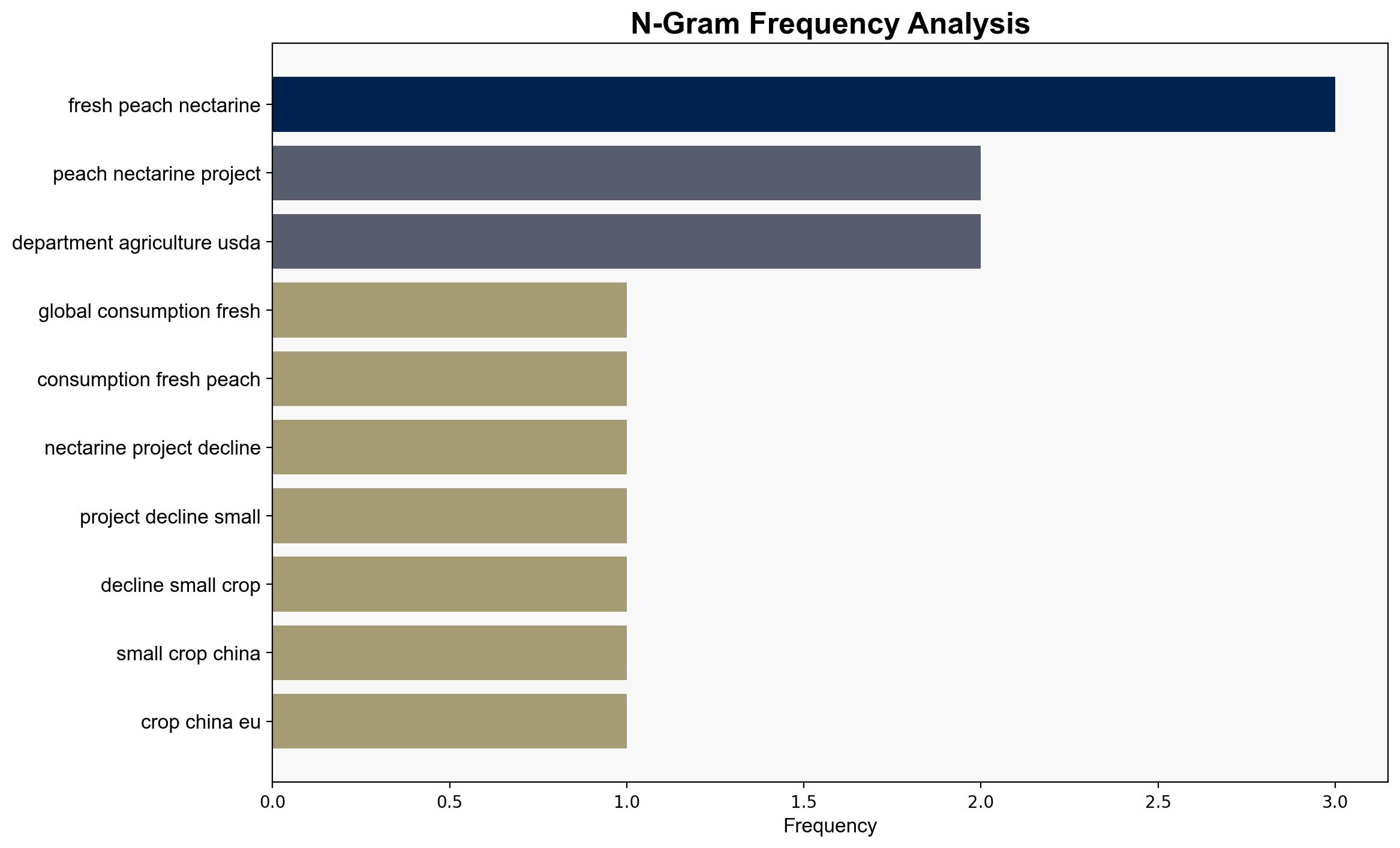Global fresh peaches nectarines offtake will likely drop on smaller crops – BusinessLine
Published on: 2025-09-29
Intelligence Report: Global fresh peaches nectarines offtake will likely drop on smaller crops – BusinessLine
1. BLUF (Bottom Line Up Front)
The global consumption of fresh peaches and nectarines is projected to decline due to smaller crops in key regions such as China, the EU, and Turkey. The most supported hypothesis suggests that adverse weather conditions and geopolitical factors will significantly impact production and exports. Confidence Level: Moderate. Recommended Action: Monitor weather patterns and geopolitical developments closely to anticipate further disruptions and adjust supply chain strategies accordingly.
2. Competing Hypotheses
1. **Hypothesis A**: The decline in global fresh peaches and nectarines consumption is primarily driven by adverse weather conditions, including frost and erratic weather, which have severely impacted production in Turkey and other regions.
2. **Hypothesis B**: The decline is mainly due to geopolitical tensions and trade restrictions affecting exports, particularly from Turkey to key markets like Russia and the EU.
Using the Analysis of Competing Hypotheses (ACH) 2.0, Hypothesis A is better supported by the evidence of documented weather events impacting production. However, Hypothesis B cannot be entirely dismissed given the ongoing geopolitical tensions.
3. Key Assumptions and Red Flags
– **Assumptions**: It is assumed that weather patterns will continue to be erratic and that geopolitical tensions will persist.
– **Red Flags**: Lack of detailed data on potential mitigation strategies by affected countries. Absence of specific information on how trade policies might change in response to these conditions.
4. Implications and Strategic Risks
The decline in peach and nectarine production could lead to increased prices and supply shortages, affecting global markets. Geopolitical tensions could exacerbate these issues, leading to potential trade disputes. Economically, countries reliant on these exports may experience reduced revenue, impacting their economies. Strategically, this could lead to increased competition for alternative suppliers, potentially destabilizing regional markets.
5. Recommendations and Outlook
- Monitor weather forecasts and implement adaptive agricultural practices to mitigate crop losses.
- Engage in diplomatic efforts to ease trade tensions and explore alternative markets to offset export declines.
- Scenario Projections:
- Best Case: Weather conditions stabilize, and geopolitical tensions ease, allowing for recovery in production and exports.
- Worst Case: Continued adverse weather and escalating geopolitical tensions lead to significant long-term market disruptions.
- Most Likely: Moderate recovery in production with persistent geopolitical challenges affecting trade dynamics.
6. Key Individuals and Entities
No specific individuals are mentioned in the source text. Key entities include the Department of Agriculture (USDA), Turkish exporters, and major importing countries such as Russia and the EU.
7. Thematic Tags
agricultural trade, geopolitical tensions, weather impact, supply chain disruption





